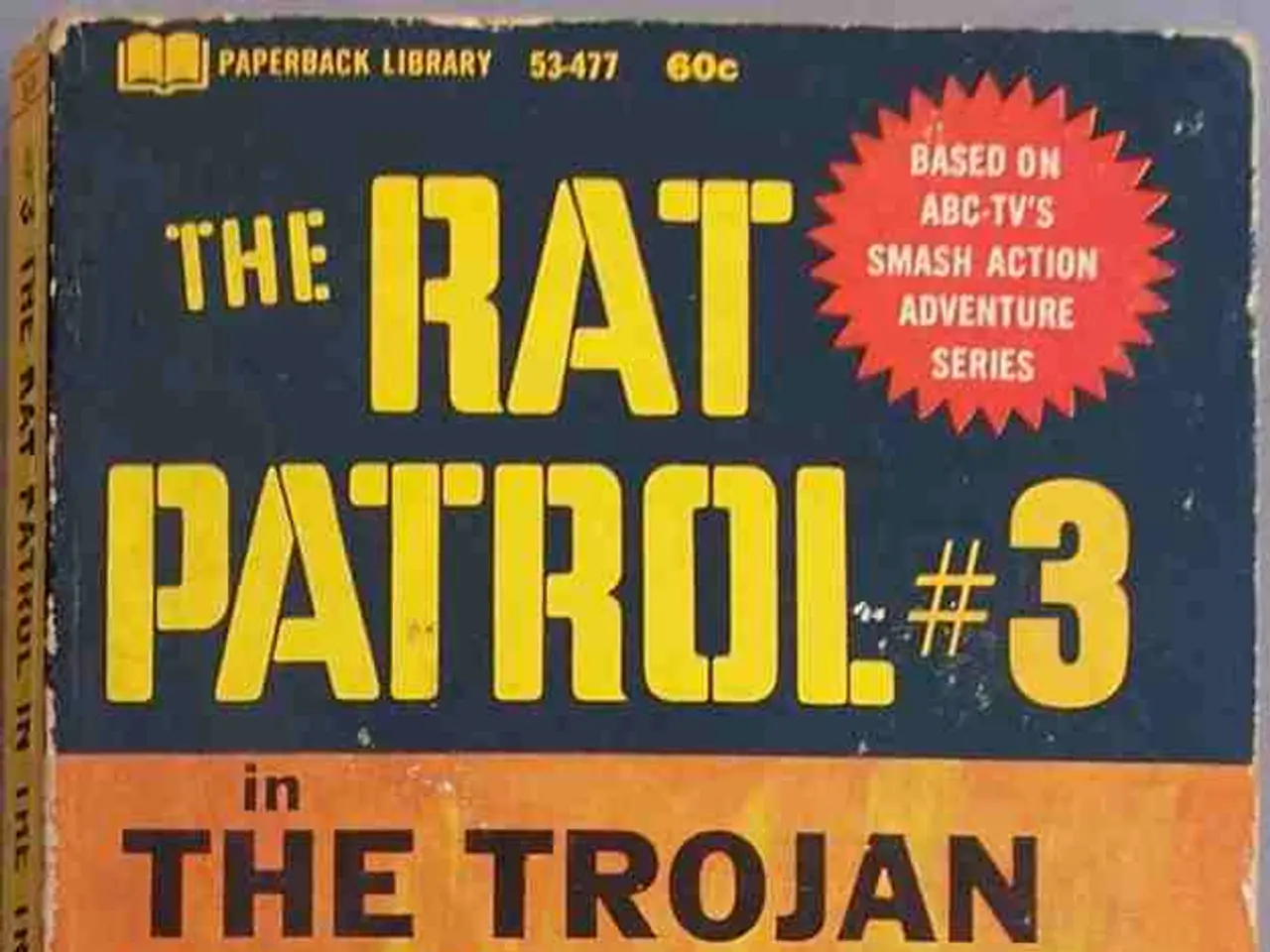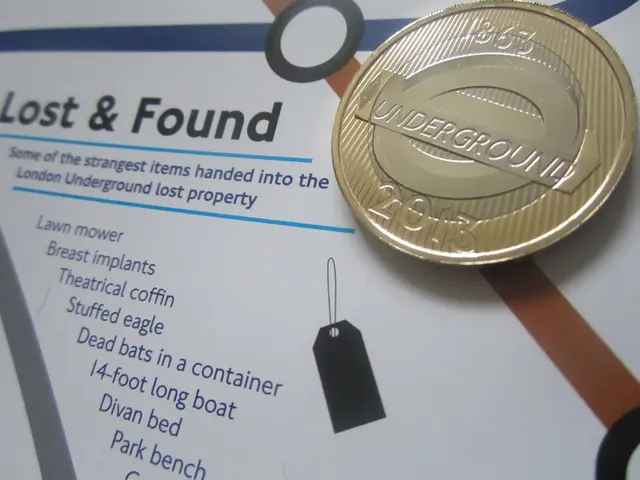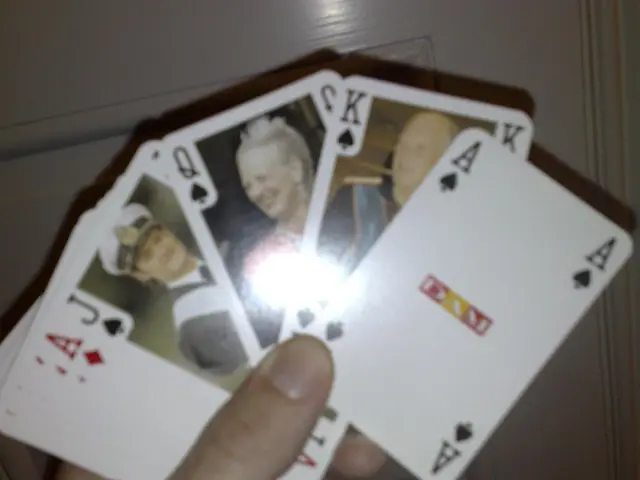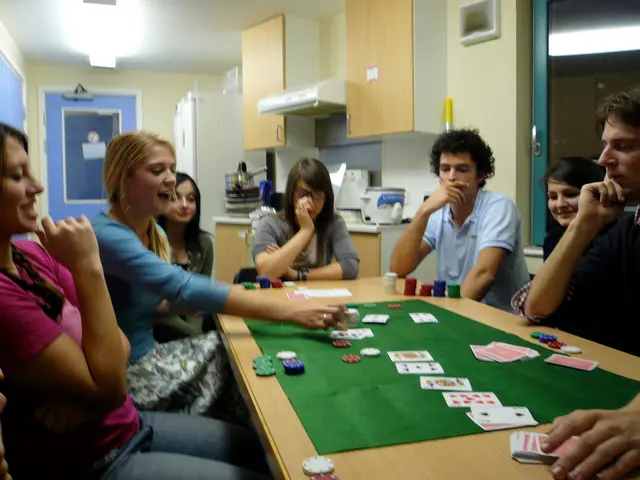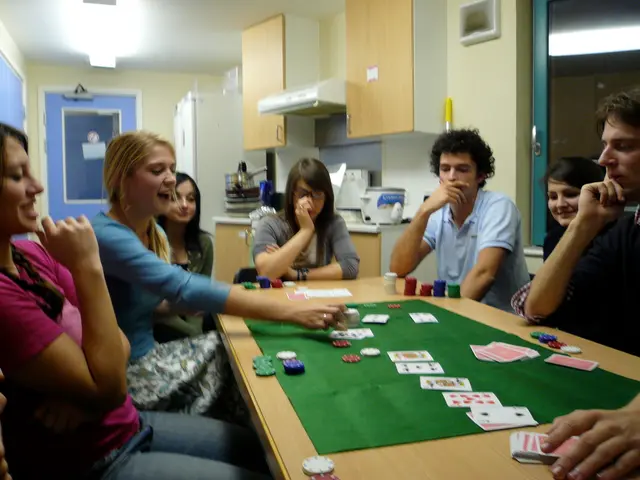The latest expose suggests a gambling issue within the ranks of the US Army is prevalent, as claimed
In the United States Army, the Army Recreation Machine Program (ARMP) operates thousands of slot machines worldwide, generating over $100 million annually [1][2][3]. However, this focus on generating revenue from gambling has raised questions about the Army's priorities, as servicemembers are experiencing gambling disorders at approximately twice the rate of civilians [1].
Key evidence suggests that problem gambling rates among military personnel are more than double those of civilians, with suicidal ideation rates among active members up to 20 times higher than civilians [1]. Nearly 40% of veterans seeking treatment for gambling addiction report suicide attempts [1][4].
The easy availability of gambling, including slot machines on military bases and overseas, contributes to the problem [2][3]. A popular game among servicemen is 88 Fortunes, with the program trying to maximize its profits by investing in popular games and setting them at locations around the world [8].
The impact on service members is significant, with emotional, financial, and mental health consequences that can affect military readiness and long-term wellbeing [3][5]. Veterans with gambling problems face elevated suicide risk and often lack sufficient access to specialized treatment and support [1][4].
Measures to address the issue remain limited but are evolving. Since 2019, Congress has mandated annual screenings for gambling disorders in military personnel, but federal research funding and comprehensive data collection have been lacking [1][4]. Proposed legislation, such as the FY26 Defense Appropriations bill, aims to establish a federally recognized research pathway for military gambling addiction, which advocates argue is essential for effective prevention and treatment [4].
However, critics argue that the military's focus on maximizing gambling profits could potentially exacerbate the problem of gambling addiction among service members. Dave Yeager, a service member, spoke about his growing addiction to slot machines as he was redeployed to different bases. Yeager felt isolated in his addiction and didn't believe there was help available [7].
In conclusion, official and advocacy sources emphasize the urgent need for expanded research, federal funding, and targeted interventions to mitigate gambling addiction’s rising toll on US Army members and other service populations [1][3][4][5]. The easy availability of gambling on military bases, the high-risk nature of military culture, and limited leisure options during deployments contribute to this growing problem. It is crucial to address this issue to ensure the wellbeing and readiness of our military service members.
References: [1] National Council on Problem Gambling. (2021). Military Problem Gambling. Retrieved from https://www.ncpgambling.org/help-treatment/treatment-providers/military-problem-gambling/ [2] National Center for Responsible Gaming. (2019). Military Gambling. Retrieved from https://ncrg.org/military-gambling [3] American Psychiatric Association. (2022). Gambling Disorder. Retrieved from https://www.psychiatry.org/patients-families/gambling-disorder [4] Congressional Research Service. (2020). Military Gambling: Issues and Concerns. Retrieved from https://crsreports.congress.gov/product/pdf/R/R46235 [5] Department of Defense. (2021). Department of Defense Suicide Event Report, 2020. Retrieved from https://www.defense.gov/news/reports/read-the-dod-suicide-event-report/ [5] National Institute of Mental Health. (2021). Gambling Disorder. Retrieved from https://www.nimh.nih.gov/health/topics/gambling-disorders/index.shtml [7] Smith, A. (2019). Inside the Gambling Epidemic Plaguing the U.S. Military. Retrieved from https://www.rollingstone.com/culture/culture-news/us-military-gambling-epidemic-1092966/ [8] Army Times. (2018). Army Recreation Machine Program generates $70.9M in 2018. Retrieved from https://www.armytimes.com/news/your-army/2019/02/21/army-recreation-machine-program-generates-70-9m-in-2018/
Casino games, such as slot machines, have been found to be popular among servicemen and women, with the Army Recreation Machine Program (ARMP) investing in these games to maximize its profits by setting them at locations worldwide [8]. The ease of access to casino-gambling, including casino games, on military bases contributes to the growing problem of gambling addiction among service members [2][3].
